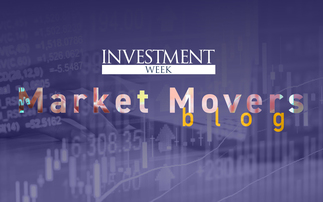2021 is just around the corner, and hopes are rising that certain sectors will bounce back. Should investors get carried away or approach with caution? 12 investment experts give their predictions on how areas such as ESG, global equities and artificial intelligence will fare next year.
Rory Powe, manager of the Man GLG Continental European Growth fund
Europe
At the time of writing, the European equity (ex-UK) index is down by just 2% since the start of the year. This contrasts with the 31% decline which took place between 1 January and the low of 18th March.
This pandemic-induced rollercoaster year surely underlines the importance of long-term investing versus any foolhardy attempts to second-guess the short-term direction of markets. Any discussion about prospects for 2021 should bear this in mind.
We have always argued that Europe's attractiveness relies upon the strength of its companies. Those who seek to ride the coat-tails of a growing economy should probably look elsewhere.
Ageing populations, the burden of debt and the fragility of demand will probably result in Europe punching below its economic weight for years to come.
Of course, the rollout of Covid-19 vaccines may bring about a welcome rebound in economic activity in both 2021 and 2022 thanks to pent-up demand and a recovery in business confidence.
But this is unlikely to be long-lasting because many of the structural headwinds (which the pandemic threw so much light upon) are likely to remain.
At least we think we can expect the European Central Bank and other central banks to maintain a highly accommodative stance, and governments to avoid a repeat of the austerity measures which followed the last economic crisis.
It is our thinking that Europe can thus look forward to a prolonged period of compressed interest rates and should try to enjoy the economic rebound over the course of the next 18 months.
And despite the recalcitrance of Poland and Hungary, the probable launch of the EU recovery fund will likely act as a source of both growth and fiscal unity, underscoring the legitimacy and integrity of the eurozone.
Europe also has more than its fair share of world-class companies. Its global perspective aligns neatly with a set of companies which prioritise innovation and long-term investing.
The region is not blighted by the short term thinking which has often played too large a role in the development of capitalism in the Anglo-Saxon world.
Investors who seek access to global, world-class companies, with a track record of long-term value creation, should not under-index their exposure to European stock markets in our view.
We believe a highly selective approach can deliver world-class returns. But think and act long-term.
Pete Drewienkiewicz, CIO global assets at Redington
Commodities
Commodities have struggled over the past decade, and are down to only about one third of their 2008 levels.
Commodities cost money to store, which means if nothing changes, commodity futures should decrease in value through time, and, unlike more traditional assets which pay coupons or dividends - as we have seen, prices can even go negative.
In regards to headwinds, a significant portion of the commodity index constitutes a range of environmentally-unfriendly assets (oil and gas, hogs, mined metals, and so on), which are likely to suffer under either any carbon emission legislation or any sustained consumer aversion.
However, investments are rarely this simple. Commodities are likely to perform well in high inflation environments. A 1970s-style supply restriction, or a simple loss of faith in governments with vast national debts and Covid-hit economies could cause an inflationary spiral.
The traditional monetary response to an inflationary spike would be to raise interest rates - however, that would be counter to the past decade's consensus approach of lowering rates to provide stimulus.
A stagflationary scenario in a weak economy could make it untenable to raise rates, meaning we had to accept inflation (especially if quantitative easing continued).
In any inflationary environment, tangible and functional/necessary assets like commodities are likely to outperform most financial assets.
Within the wider basket of commodities too, gold tends to perform well in economic downturns.















